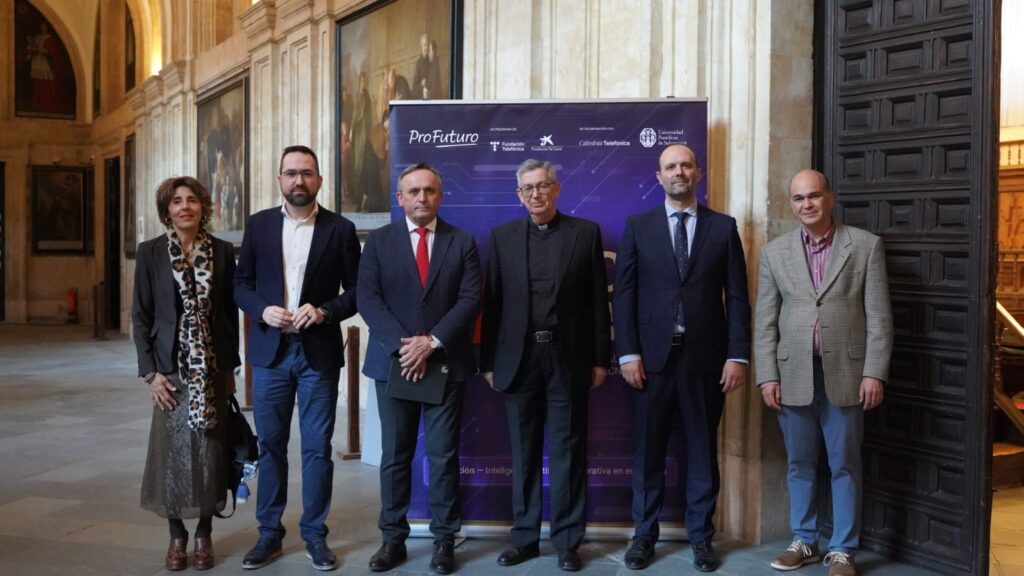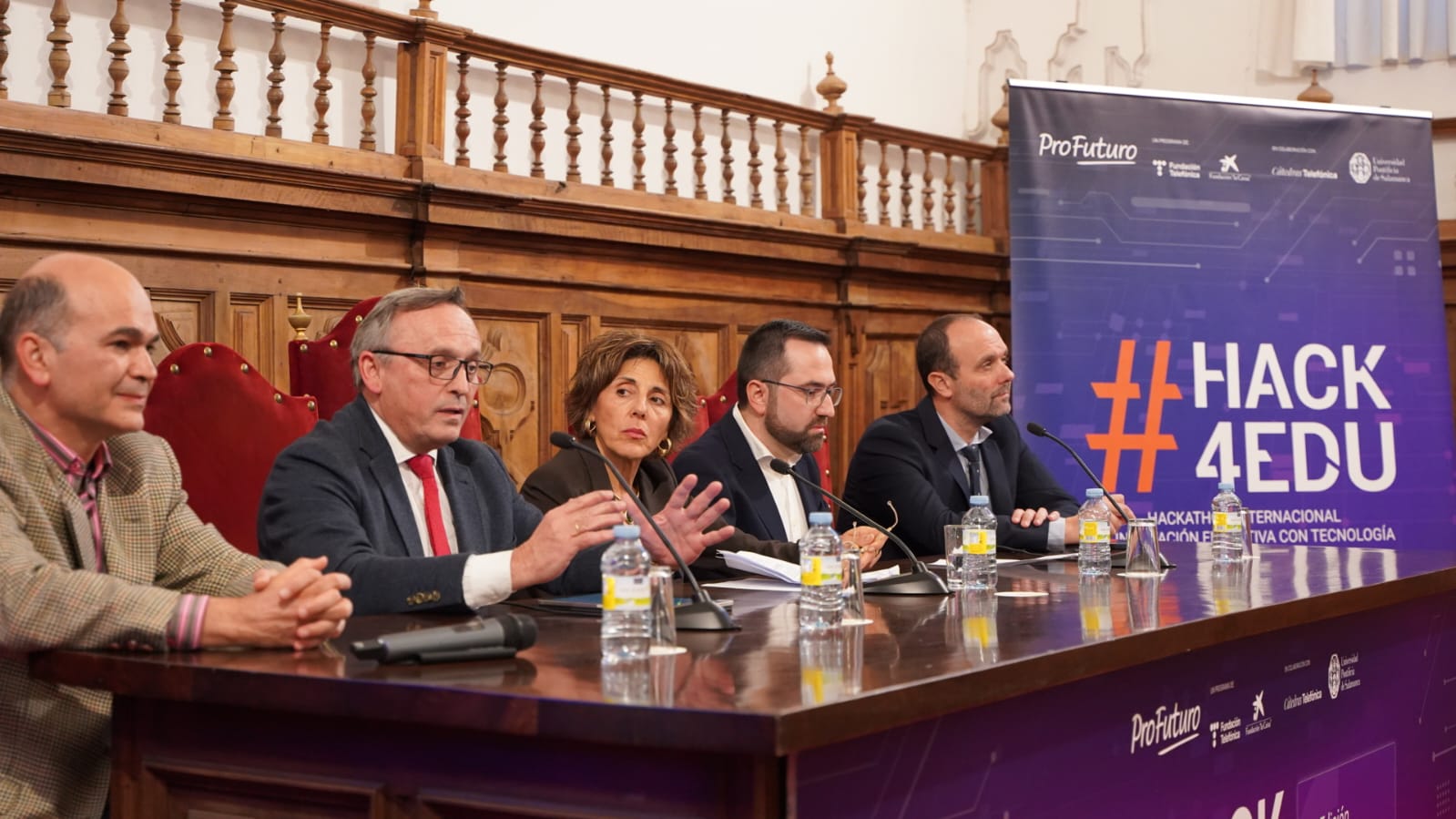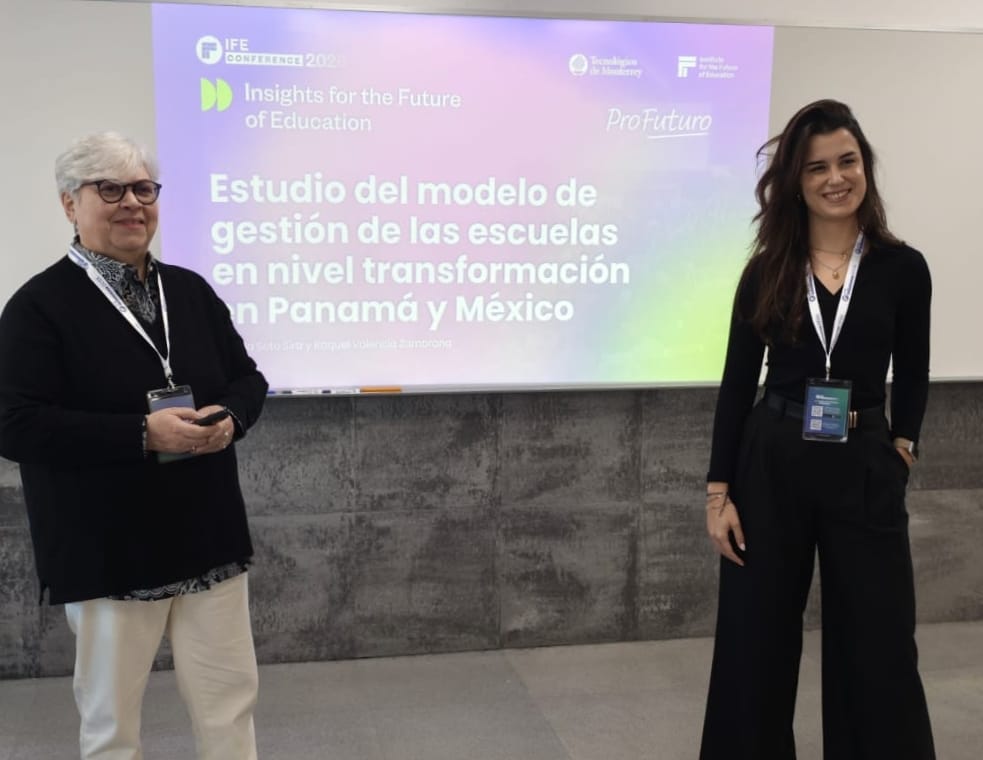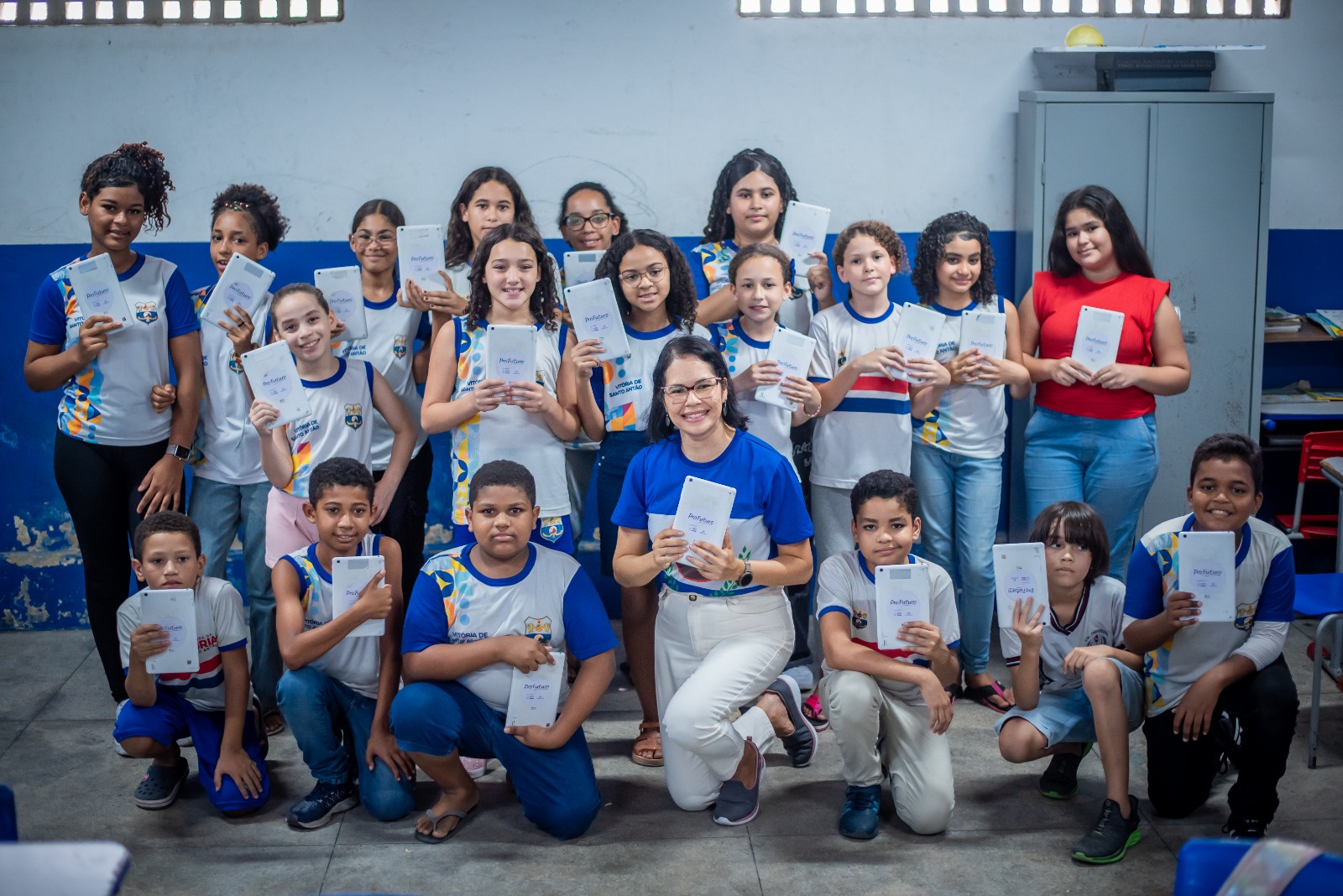The sixth edition of the largest hackathon with a social purpose dedicated to digital education kicks off today with an international focus. For the first time, it incorporates European universities to boost digital talent and promote the ethical use of technology and artificial intelligence in education, thereby promoting social transformation through technological challenges.
Promoted by the Fundación Telefónica and Fundación ‘la Caixa’, through their ProFuturo project, together with the Pontifical University of Salamanca (UPSA) and the Telefónica Chairs Network, #Hack4Edu is being held in a hybrid format from 24 to 31 October 2025, with more than 800 young people from around the world taking part. The initiative poses educational technological challenges to generate inclusive, sustainable and scalable solutions, connecting key players and transforming challenges into prototypes that reduce the digital divide and improve learning.
The Aula Magna of the Pontifical University of Salamanca (UPSA) hosted the presentation of the international hackathon in an event that highlighted the collaboration between universities, administrations and companies to transform education with technology and evidence.
After the welcome by the rector of the Pontifical University of Salamanca, Santiago García-Jalón de la Lama, the event was opened by Ana Mª Fermoso García, Vice-Rector for Research and Transfer (UPSA), who stressed that ‘events such as #Hack4edu confirm the University’s commitment to innovation, research and entrepreneurship, promoting it both in its research and among its students’.

Fermoso also highlighted the international hackathon as an opportunity to make technology available to those who need it most. ‘This initiative reinforces our social and identity commitment, as well as being a magnificent showcase for us to make ourselves known internationally, as it has become the most important event of its kind in the field of education,’ she said.
Next, Luis Enrique Ortega Arnaiz, Deputy Minister for Digital Transformation of the Regional Government of Castile and León, highlighted in his speech that “artificial intelligence today offers us tools to adapt learning processes to the abilities, pace and needs of each individual. It can help us detect difficulties before they become barriers, propose fairer learning pathways and free up time for teachers to focus on what is most important: supporting, motivating and guiding. But this revolution must be built from an ethical and humanistic perspective. It is not enough for AI to be effective; it must also be fair, inclusive and transparent.”
For his part, Manuel José Ruiz García, Data Analytics, Product and Innovation Manager at ProFuturo, closed the panel by highlighting cooperation and educational impact: ‘With Hack4Edu, we connect international talent to drive innovation, ethics and social transformation through technological challenges applied to education. This year, we have also expanded the participation of European universities to promote collaboration and educational innovation with technology on our continent.’
Next, Javier Alonso Sánchez, Regional Director of Telefónica Spain in Castile and León, emphasised technological infrastructure and cybersecurity as levers for equality: ‘Hack4Edu represents the best of technology when it is put at the service of people and is an example of how collaboration between universities, businesses and government can transform education.’ ‘We are proud to see how the Telefónica Chair Network continues to grow, expanding its reach and reinforcing the spirit of international cooperation that stems from talent, ethics and social commitment.’
Finally, the co-organiser of #Hack4edu and director of the Telefónica UPSA Chair, Manuel Martín-Merino, recalled that ‘this project is the most important in the field of education, promoting innovation and technology transfer among university students, with the aim of solving the challenges posed by digital education in disadvantaged regions.’ In this vein, the director highlighted the multidisciplinary and international nature of #Hack4edu with a common social purpose. ‘Along with the participation of universities from the American continent, hackers from regions as diverse as Ukraine, Portugal and Bosnia have joined in,’ he concluded.






